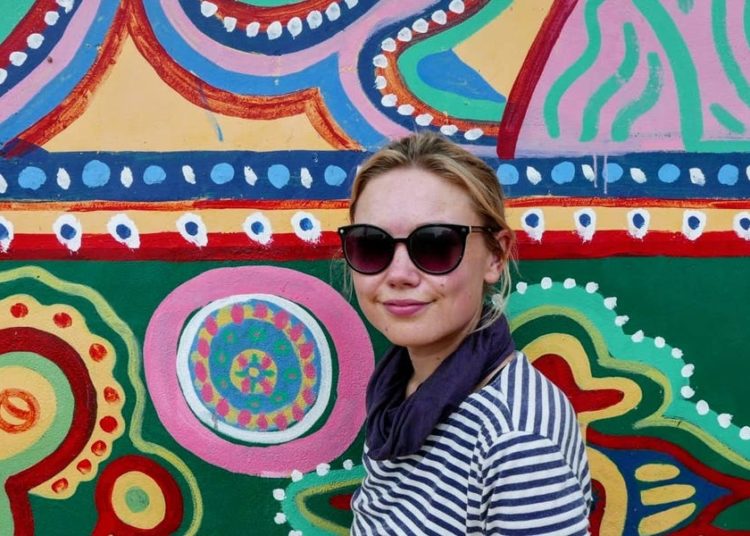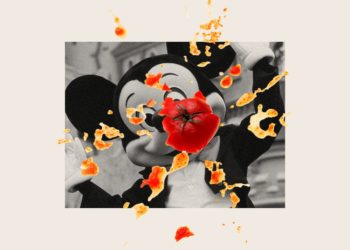THE COMPOUND, by Aisling Rawle
In the second season of Netflix’s “Unbreakable Kimmy Schmidt” there’s a running gag in which characters constantly reference minute details in the lives of the Kardashians. It happens unbidden: “Like when Kourtney squirted her breast milk on Kim’s psoriasis,” someone will say before wondering: “How do I know about that?”
The joke is: Whether you like it or not — and even if you were raised in a bunker like Kimmy herself — you can’t escape the thrall of reality TV. Maybe that’s why Aisling Rawle’s smart and provocative debut novel, “The Compound,” is so damn addictive.
The story takes place inside a demented reality competition program that is basically musical chairs from hell. Twenty people — 10 men and 10 women — are selected to live in the titular desert house. The residence is grand, but it lies in utter disrepair, lacking even basic amenities like windows and doors. “It looked a lot like the home of a billionaire, if the billionaire’s staff had gone on strike,” our narrator, a contestant named Lily, notes. That’s an issue because the environment outside is inhospitable at best and actively dangerous at worst.
The game is simple: The person who lasts the longest at the compound wins.
But, as in any good competition, there are rules and twists. Primarily: “You stayed in the compound only if you woke in the morning next to someone of the opposite sex. If you slept alone, you would be gone by sunrise.”
To earn food, tools and other supplies to not just survive in the compound but to turn the space into an idyllic resort, contestants must come together and complete communal tasks, some of which involve voting people out, disturbing the delicate balance of the group and unsettling the lifesaving partnerships. Meanwhile, contestants are also working to complete personal tasks to gain luxury goods, often emotionally manipulative assignments designed to force connections with other residents, but they can’t reveal these side missions to the group, meaning nobody is ever sure if an action or gesture from a fellow contestant is genuine or just a play for individual profit.
Lily knows roughly what to expect from watching previous seasons, but the trouble begins on hers almost immediately. When the men arrive after their long trek through the desert, there are only nine of them; one man didn’t make it, though none of the guys will say exactly what happened to him. With uneven numbers, Lily needs to find a bedmate, fast. And just like that, the game is on.
The premise itself is the novel’s first achievement — the TV show is a wonderfully abhorrent and ethically dubious monstrosity, and a testament to Rawle’s imagination. Add in Lily’s castmates, a captivating bunch that includes the brutish Tom, who steamrolls and manhandles his fellow competitors to get ahead; Jacintha, perhaps Lily’s only true friend in the house, who feels forced into a show relationship she doesn’t want; and Becca, a quiet strategist who is hiding, it turns out, a few secrets of her own.
They come together to form a fantastically and uncomfortably fun drama, one that is particularly enjoyable because of a profane truth: It’s entertaining to watch hot people do psychotic things. Characters scheme and hoard resources; at one point a player half-drowns another so the group can get a couch. Romances bloom and are betrayed. The unseen producers give increasingly deranged orders like “Task: Spit in your bedmate’s mouth. Reward: Sun loungers.”
You see, the producers don’t care about the contestants; they only care about making good TV. As time wears on, the game reveals itself to be a surreal nightmare. The final third of the book in particular is a hair-raising suite of terrors.
With such a juicy conceit, it would be easy to view the novel as just an easy summer romp. But Rawle is up to something more thoughtful; “The Compound” joins a budding genre of fiction that uses disturbing televised competitions to critique our social norms, including “Chain-Gang All-Stars” and “The Hunger Games.”
Where those books flash between competitors and their spectators to expose the brutality we’re willing to consume as entertainment — as well as the prison industrial complex, oppression, tyranny, fascism — “The Compound” takes a different approach: keeping us firmly ensconced in the story’s shambolic Eden. We get only glancing references to what lies beyond — contestants are prohibited from sharing details of their lives outside the show — and they all hint at some type of devastation: “I wondered if any of the boys had fought in the wars,” Lily cryptically muses. Looking out into the desert beyond the property, she thinks she sees red plants growing. A contestant quickly corrects her: “Those are bush fires.”
But is the paradise inside the compound any safer? Having arrived on this show to escape boredom and suffering in the outside world, what are the contestants willing to sacrifice for an illusion?
With “The Compound,” Rawle has made working through these heavy questions both thrilling and haunting.
THE COMPOUND | By Aisling Rawle | Random House | 292 pp. | $29
The post It’s Fun to Watch Hot People Do Psychotic Things in This Novel appeared first on New York Times.




